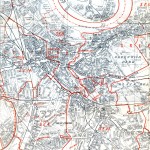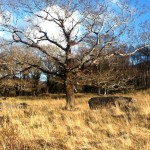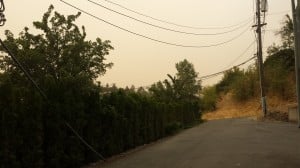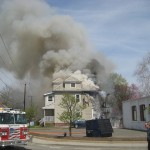For many people, the idea of learning a new language is reason for distress. To me, it’s an opportunity to talk to new people and spirits. While some magickal workers would argue that spirits are not limited by language barriers, my personal experience suggests that language is a powerful key in the search for connection. It may be entirely true that you can speak to any spirit in your own language, but it seems that the spirits, just like humans, like it when you make the extra effort.
It’s not uncommon in the realm of folklore for communities to hold on to an old language for prayer or ritual purposes. Sometimes fragments of a long-forgotten language are held onto desperately in magic words or phrases. Sometimes those fragments are so old and history-worn that they’ve lost all connection to whatever they once were. Even professional linguists have trouble pulling the meanings and etymology out of the gibberish. And yet, those strings of incomprehensible sounds have power. Why do we hold on to those sounds, that unknown language? And why does it have power?
We could answer that it has everything to do with well worn grooves in the pathways of magick. Or we could say that these sounds are the last links to a language that was shared in some place and time with a specific set of spirits who travelled with and maintain links with the community who uses those words in ritual or spellwork. And if the spirits who travel with our people are habituated to a certain linguistic link, how much more so are those spirits who have stayed in a place over hundreds or thousands of years habituated to the linguistic patterns of that place?
And so it is that I find myself fascinated with the rhythm of Niimiipuutímt words when I sit on a hilltop in Northern Idaho or the song of Gaelic in the Scottish Highlands, and I find that if I speak the words that are familiar in that space I hear very different voices speaking back to me than if I simply rattle on in my native Californian-flavored English.
But it doesn’t stop there. I can sit on Mount Diablo just outside of San Francisco and find different layers of history and place just by changing the language in which I talk to the Land or the plants or the bodyless spirits. The interactions in each language are layered with meaning drawn from the relationships that each of the communities have had with that mountain. Another layer entirely can be teased out by the use of glossolalia, rolling my tongue and lips in sounds that have no meaning at all to me but bubble up from some unmapped part of my subconscious.
It’s not so surprising that the language one uses to speak to spirit changes the texture of the experience. Try walking around Los Angeles for a day speaking only Spanish, and then walk around the same neighborhoods the next day speaking only English. You will have very different interactions. You will meet different people, end up in different stores, eat different foods. You might find yourself perfectly at home in a neighborhood on the day you spoke one language and completely lost on the day that you spoke its opposite. Why wouldn’t this be the same with the non-human inhabitants of the place? After all, if those spirits have relationships with the people, form alliances and communities along side them, it makes perfect sense for language to be a part of that.












